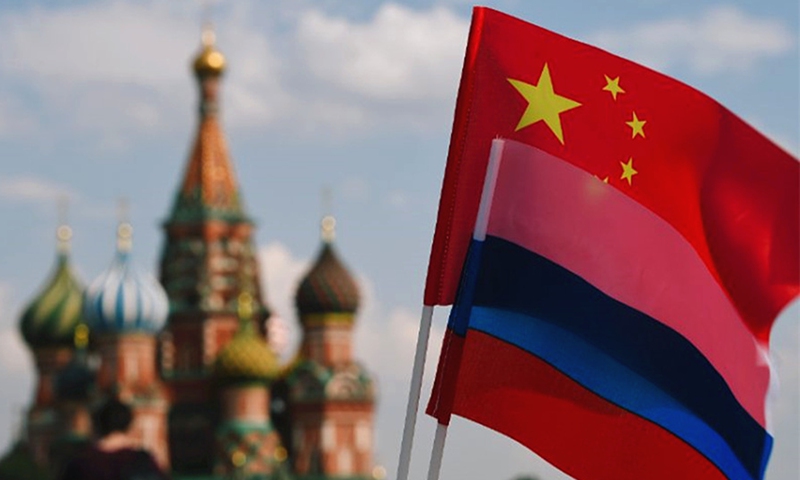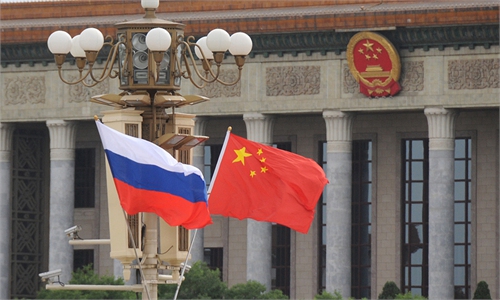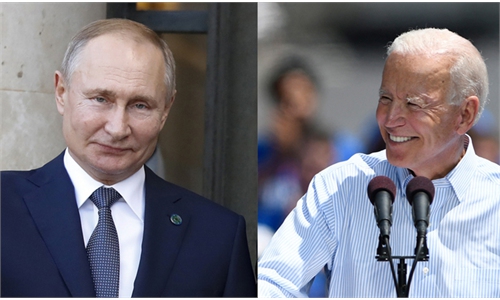
China Russia Photo:Xinhua
As China and Russia forge a closer partnership, anxiety in Washington are growing. Elites in Washington naively think they could drive a wedge between China and Russia by stimulating Moscow's wariness toward Beijing, but they will find in the end they are self-deceiving.Michael McFaul, former US ambassador to Russia, held Russia up to ridicule on Twitter Sunday, saying "Russia will always be China's junior partner." He also said he wonders "how Russians feel about that." In fact, just two days before McFaul published the post, Russian President Vladimir Putin said Russia-China relations have reached an unprecedentedly high level and the two countries have extensive shared interests. He emphasized Russia is willing to deepen cooperation with China in more areas, via video link when he took a question from the Xinhua News Agency in a meeting with heads of major international news agencies, in St. Petersburg.
McFaul, by mocking Russia as a "junior partner" of China, has clearly underestimated Russia's international status and the country's ability to choose a strategy that is in line with its own interests. In today's multi-polar world, Russia remains an important political and military power, and Moscow won't allow itself to be a "junior partner" of any other country. In fact, in its strengthening relations with China, not only has Russia maintained its independence, but has gained the biggest leverage in dealing with US and Western suppression.
According to a joint Chicago Council on Global Affairs-Levada Analytical Center survey in March, a majority of Russians (56 percent of the polled) say Moscow's active cooperation with Beijing is not increasing Russia's dependence on China. And 55 percent think their country's ties to China strengthen Russia's international status.
Cui Heng, an assistant research fellow from the Center for Russian Studies of East China Normal University, told the Global Times that views of US elites such as McFaul are deeply influenced by US hegemonic ideology. The US hegemonic mentality has led Washington to always view other countries in a condescending manner, and a new type of major power relations, represented by China-Russia relations, which stresses mutual respect, equality, reciprocity, win-win and non-interference in each other's internal affairs, has never entered the vision of US mainstream elites, Cui noted.
It seems that mutual respect is not in the vocabulary of US diplomacy, but it is the cornerstone of China-Russia relations. The US elites are ignorant of China-Russia relations. When they claimed Russia is a "junior partner" of China, they were presuming China-Russia relations follow the logic of how Washington treats its allies - it's fair to say Washington treats its allies worse than "junior partners," and always puts its own interests above those of its allies and so-called partners.
The increasingly close China-Russia relationship is partly driven by pressure from the US. However, as Washington now has become more aware of the risks it would bring to the US, Washington intends to play tricks to create a rift between Beijing and Moscow. But the China-Russia partnership is strong enough and won't be easily divided. As Danil Bochkov, an expert at the Russian International Affairs Council, said in a previous interview with the Global Times, China and Russia understand that opposing Washington's pressure together is their naturally overlapping interest, which makes the relationship steadfast and untouched by any global political turbulence.
China-Russia relations have reached their best period. Today's bilateral relationship has become more mature, with the economies of the two countries highly complementary and mutual strategic support serving as a powerful weapon for the two to cope with Western suppression.
The hegemonic US regards both China and Russia as its biggest obstacles. This won't change. On one hand, Washington plays tricks to draw Russia to pivot away from China, and on the other, in a Washington Post op-ed touting his upcoming trip to Europe, US President Joe Biden called on US and Europe to stand united to "address Russia's challenges to European security." Is this how the US treats Russia as a "partner?"




